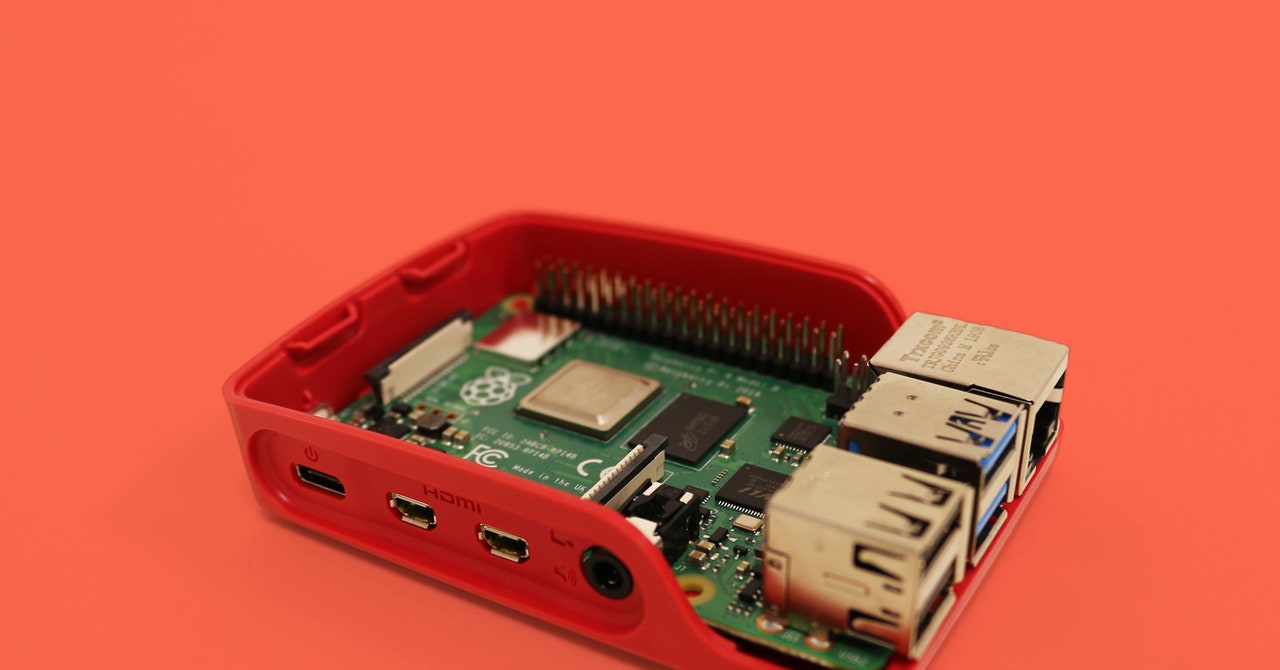
[ad_1]
Seven years ago, the number of applications to study computing science at the University of Cambridge had dwindled to just a few hundred. Eben Upton, then the director of studies there, was dismayed. In an attempt to solve the problem, he created a budget single-board computer to encourage study and play, and accidentally built a British computing empire.
The first Raspberry Pi was launched in 2012, and since then nearly 27 million devices have been sold, the government has handed the Raspberry Pi Foundation and its partners £78 million to spend on inspiring kids to code, and the Pi has evolved so dramatically that the newest edition, the Raspberry Pi 4 Model B, is no longer a cheap and cheerful computing board but an actual, honest-to-goodness PC — with a starting price of £34.
“We’ve always seen ourselves as a PC company, and with every product iteration it’s become more like a PC,” says Upton. “This is the one that really takes us past what’s required for the majority of PCs.”
That achievement hasn’t come via a leap forward in computing technology, but a levelling out in what users want. “All we’ve done is what everyone does, which is to just climb the technology curve — but what’s happened is the watermark hasn’t moved up, so PC performance has largely flatlined,” Upton says. “And consumer requirements for PC performance have largely flatlined.”
The Raspberry Pi 4 is an entirely new platform, as it steps away from the older, less powerful processors used in all the previous versions. It offers up to 4GB of RAM, USB 3 and dual HDMI that supports 4K video. Upton particularly hopes to take advantage of the more powerful graphics and 3D capabilities. “I’d like to see a games industry on Raspberry Pi,” he says. “I don’t really understand why there isn’t one.”
The last Pi was comparable to a PlayStation 2 or first-gen Xbox in terms of graphics specifications, he notes, though one sticking point could be the platform’s lack of DRM. “Usually if you sell that many of something, somebody starts to ask themselves whether there’s a commercial software business to be had there,” Upton says, though he stresses Raspberry Pi isn’t planning on becoming a games developer itself, but hopes someone else takes up that work.
[ad_2]
Source link : https://www.wired.com/story/raspberry-pi-uk-eben-upton-pi-4/